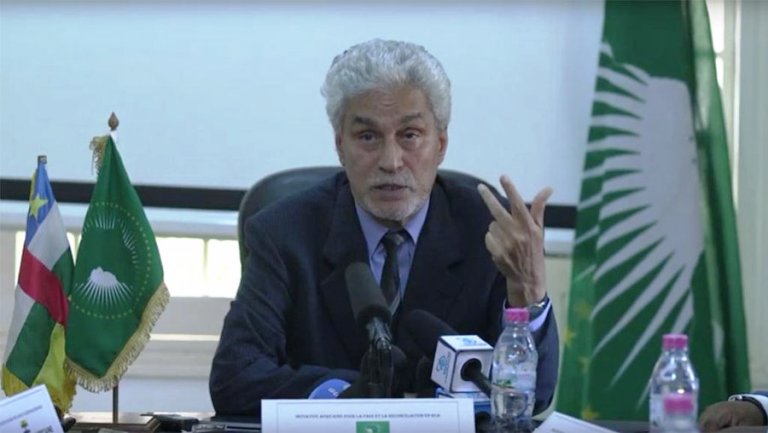Civilian-military dialogue in Sudan to be held at late stages: Ould Lebatt
May 13, 2022 (KHARTOUM) – The African Union Special Envoy for Sudan Mohamed el-Hacen Ould Lebatt stressed that dialogue between the civilian and military components is inevitable to resolve the Sudanese crisis, adding that it will take place at a later stage.
The AU, IGAD envoys and UNITMAS head hold a series of preliminary meetings with the Sudanese political groups and the civil society organizations, omitting the military leaders who overthrew the transitional government in October 2021.
In an interview with the Saudi funded Al-Hadath TV broadcast on Friday, Ould Lebatt stressed that the trilateral mechanism has a limited role to facilitate the intra-Sudanese dialogue. He added the decision on everything is taken only by the Sudanese stakeholders.
In addition, he disclosed that the dialogue process includes also the military component.
“There must be a dialogue with the military establishment. The indirect dialogue formula combines civilians and military, alike.”
“In the future, there may be some mechanisms gathering both of them, but I do not want to discuss now,” he added.
He further said that if the military component decides to hand over power to civilians, this power transfer would intervene after a discussion between the two parties.
“There must be some form of partnership between civilians and the military,” he underscored. But “I don’t know what it is,” he was quick to add.
Several groups participating in the political process accuse the AU envoy of reflecting the positions of the military component and seeking to impose their agenda.
However, the envoy brushed aside such allegations. He stressed that the members of the tripartite mechanism agreed to closely coordinate their activities and to have the same position on everything they do.
“If we fail to reach an agreement on a matter we postpone the discussion to a later meeting until we agree on it,” he emphasized.
Ould Labat said they would bring civilians and military together as soon as they found that the two sides had reached common points that would allow moving forward.
He insisted on the need to include all the Sudanese without excluding anyone.
“Exclusion is a key factor in political crises,” he said.
He went further to say that in the talks that led to the constitutional declaration of 2019, he had called for including some political forces, but his opinion was not taken into account by the parties participating in the civilian-military dialogue at that time.
(ST)

